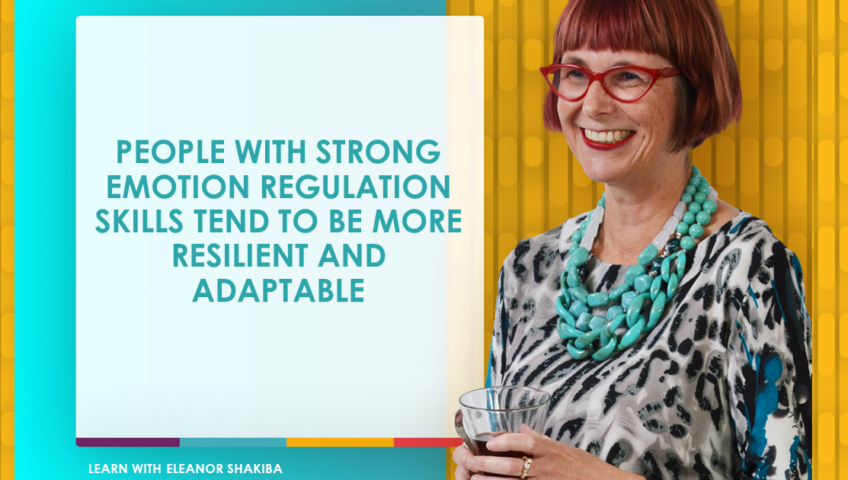Have you ever wondered why some people seem to exude confidence naturally, while the rest of us struggle to find it? The truth is, confidence is not a personality trait or a genetic gift, it is a skill that can be developed and improved upon. And it turns out that building confidence might be more about developing emotion regulation skills than working on your self-esteem or trying to be more ‘authentic’. Indeed, it’s important not to confuse authenticity with being emotionally dysregulated.
So, what is emotion regulation and how can strengthening it boost your confidence? Basically, it’s the ability to notice and manage your emotional states. Doing this helps you respond constructively to difficult situations and setbacks. This boosts your resilience, problem-solving ability and confidence. In fact, research from the University of California, Berkeley, shows that people with strong emotion regulation skills tend to be more resilient and adaptable, which helps them to be authentically confident.
Take Sarah, a seasoned project manager in a top tech company. She was once notorious for her volatile reactions under stress. However, after learning about emotion regulation, she started implementing techniques such solution-focused thinking and cognitive reframing. Over time, she became more composed, better at decision-making and more confident – a metamorphosis her colleagues couldn’t help but notice.
So, how can you, too, master emotion regulation and build genuine confidence? This is a topic I explore extensively in my free masterclass, Hardwired for Confidence. For now, though, here’s a quick overview of the three main skills involved in wiring your brain for deep confidence.
Attention direction
This skill involves choosing where you focus your attention. Emotionally regulated people are skilled at directing their attention to the present moment, rather than getting caught up in negative thoughts or worries about the future. They also have the ability to shift their attention away from things that trigger unhelpful emotions, such as comparing themselves to others.
Free e-book and video tips.Get your copy today!
|
|
Breakthrough thinking
Changing how you tackle problems and setbacks can have a powerful impact on your confidence. Emotionally regulated individuals are able to focus on solutions rather than dwelling on problems. They also are open to alternatives perspectives and are willing to shift their thinking in order to find effective solutions. This prevents them from getting stuck in negative thought patterns and increases their confidence in their ability to handle challenges.
Action reprogramming
Emotionally well-regulated people consciously choose how to respond, rather than reacting impulsively. This allows them to behave in ways that reap positive results. When you learn to change your habits and action-repertoires, you will naturally create a more positive life experience. This, in turn, boosts your confidence and self-assurance.
So, if you want to build complete confidence, it’s crucial to develop these three essential skills of emotion regulation. By learning how to direct your attention, think more constructively and take intentional actions, you will experience a transformation in your confidence levels. And remember, building true confidence is not about pretending to be someone you’re not or ignoring your emotions, it’s about developing the skills to manage them effectively and authentically.
This article was created by Eleanor Shakiba
Eleanor is a leadership trainer and success coach. Her mission is inspiring talented people to become leaders who make a difference. Since discovering her passion for training and development, Eleanor has trained more than 60,000 people. She delivers face-to-face workshops for corporates, online masterclasses for leaders and Positive Psychology retreats for trainers, HR practitioners and leaders.

